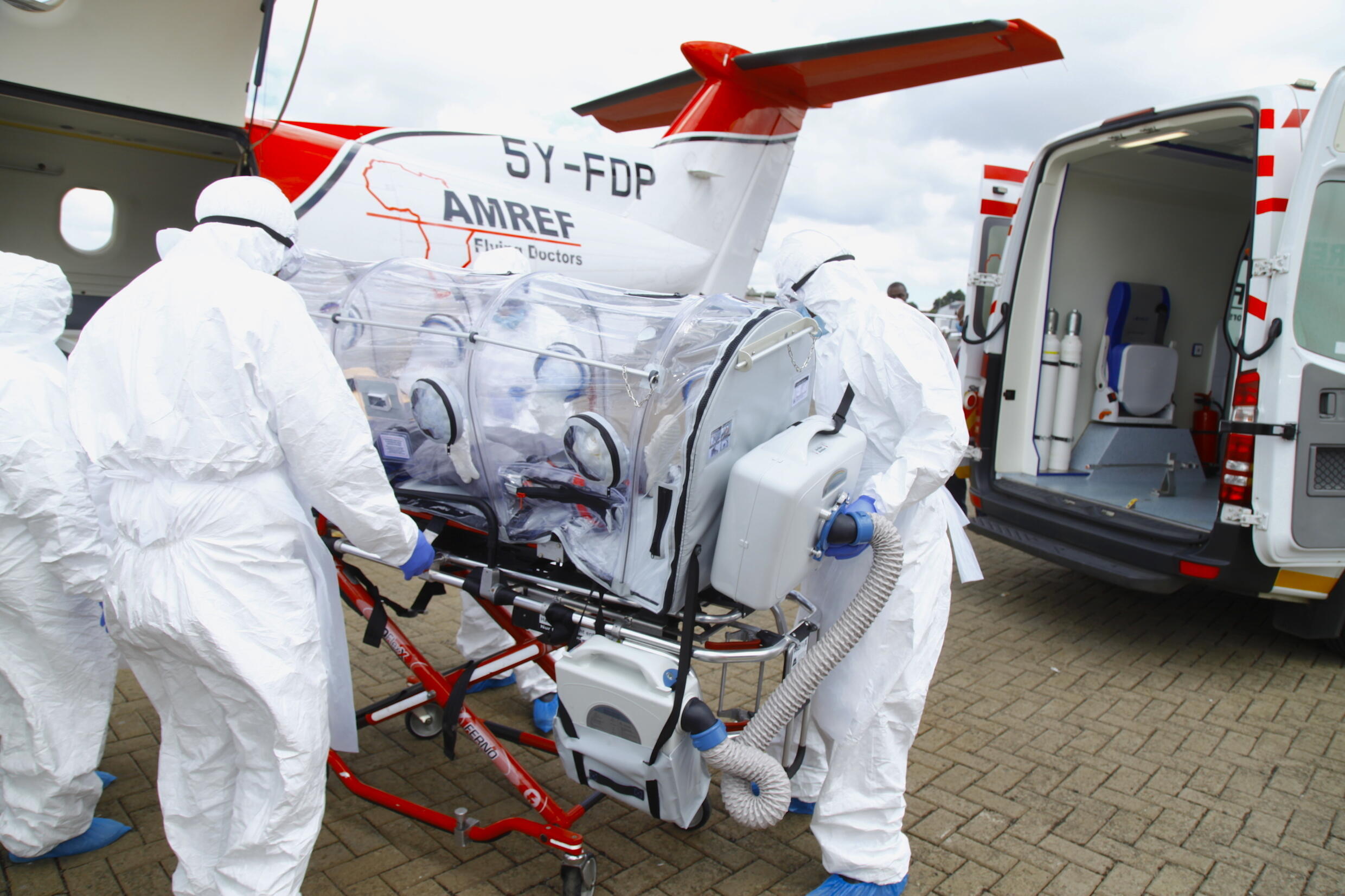

Nairobi – Experts in the health services sector warn about the increase in emergency services due to the increase in non-communicable diseases and the pressure of free trade in the African region.
In a village on the Kenyan border in the Wajir area, in the north-east of the country, a mother has experienced labour pains when she is taken to the health centre; doctors say her condition has failed, so doctors from the AMREF organization are required to take their plane immediately and go to help.
Mount Kenya or Kilimanjaro: among the group of people who went to climb the mountain as exercise, there are two people who have experienced problems associated with climbing the mountain, and they need to be rescued and brought back to Nairobi for treatment.
In the Marsabit area in eastern Kenya, a mother has called because her unique son has been attacked and bitten by a hyena, and she does not know where to get help.


They are daily situations that AMREF doctors have to deal with every morning in an attempt to fill the vacuum of access to health services.
“Our job is to transport patients, who may be in critical condition, a situation that has suddenly hit them, an emergency like an accident, diseases that have hit a person far from his home, perhaps he has travelled,” said Dr Joseph Lelo.
In addition, Dr Joseph Lelo, one of the doctors who deal with patients transported by plane, added that AMREF flying doctors have four types of planes that can quickly move and take patients wherever they are in Kenya and even throughout East Africa.
However, the chief executive officer of AMREF Flying Doctors, Stephen Gitau, has said that conditions have changed and investments in emergency health services such as those they provide are beginning to become basic services.
Gitau says the increase in non-communicable diseases in developing countries has fueled the need for emergency services.
“Many people have problems with blood pressure, mental health problems, diabetes and as these diseases increase, we also have many emergency cases,” said Stephen Gitau.
It has also been stated that these diseases are increasing not only in adults but also in children, so it is important that such services are easily available.
AMREF also emphasizes that at this time when African countries are in the process of opening borders to do business between different countries, health services are an important pillar.
Quality services have been emphasized as criteria that investors consider when deciding to set up a business or build a factory.
“In human life, illness happens, sometimes someone is overwhelmed or someone is in a bad place; therefore, those emergency services are very important,” stressed Gitau.
People who want to invest in any country in Africa look at which country has good hospitals and good health care systems, and this affects business decisions.
AMREF says that although it is expensive to provide the services they provide due to the cost of air travel, it is in talks with the government to ensure citizens registered under the government health insurance program get such emergency services.
Article first published on https://www.rfi.fr/sw/afrika/20240207-kenya-uhitaji-wa-huduma-za-dharura-waongezeka-magonjwa-yasioambukizwa-yakizidi?utm_medium=social&utm_campaign=whatsapp&utm_source=shorty
Achuman Emoni stretches her hands, illustrating the vast distance she has travelled to reach the…
During a session held at Africa Health Agenda International Conference in Kigali, Rwanda, on 4th…
Amref Health Africa, in collaboration with the Turkana County Department of Health Services, introduced the…
Amref Health Africa, in collaboration with the Turkana County Department of Health Services, introduced the…
Over the past six years, Amref Health Africa has positioned itself as a leading voice…
Africa has made significant strides in advocating for health research and development, yet gaps in…